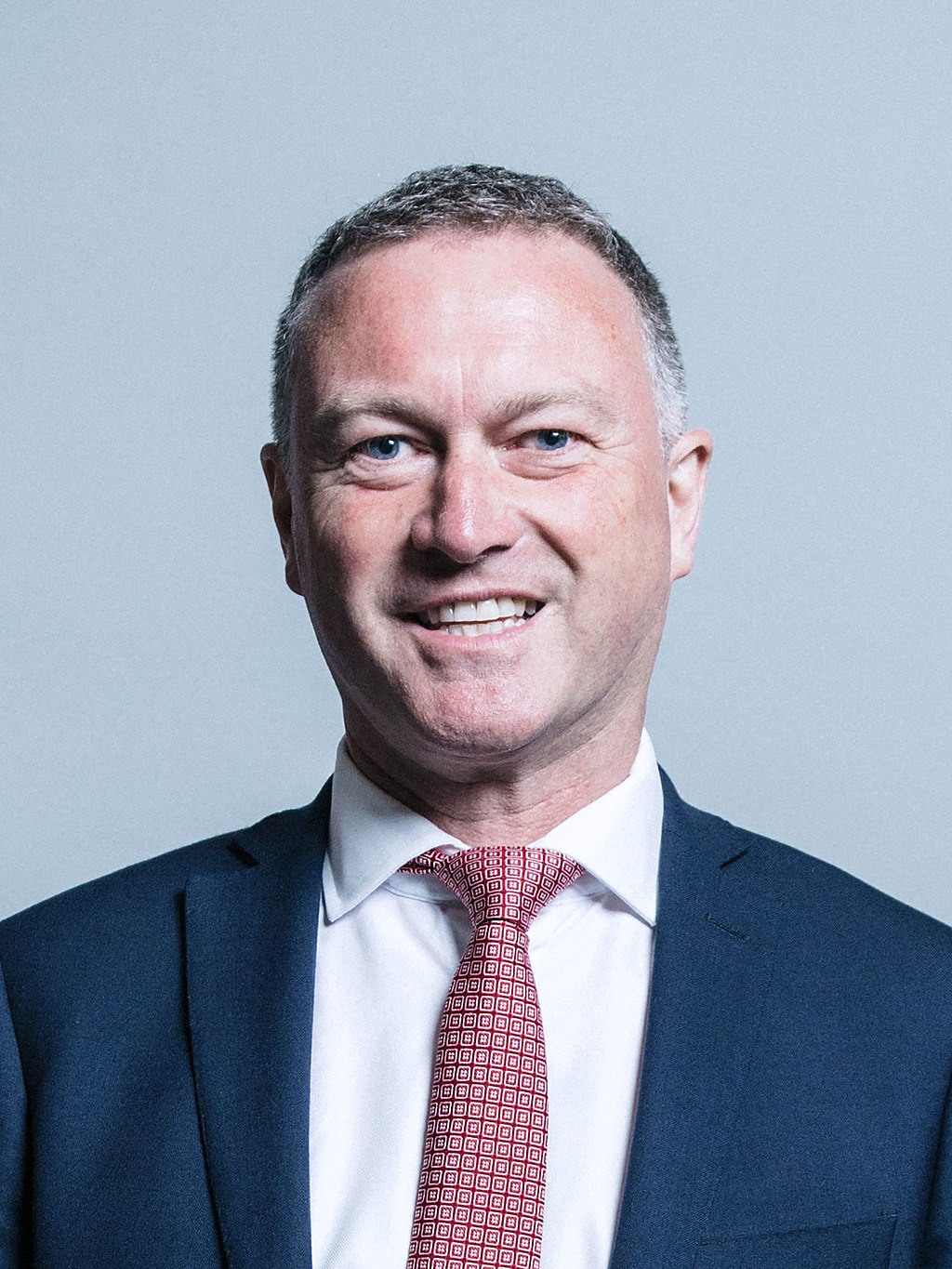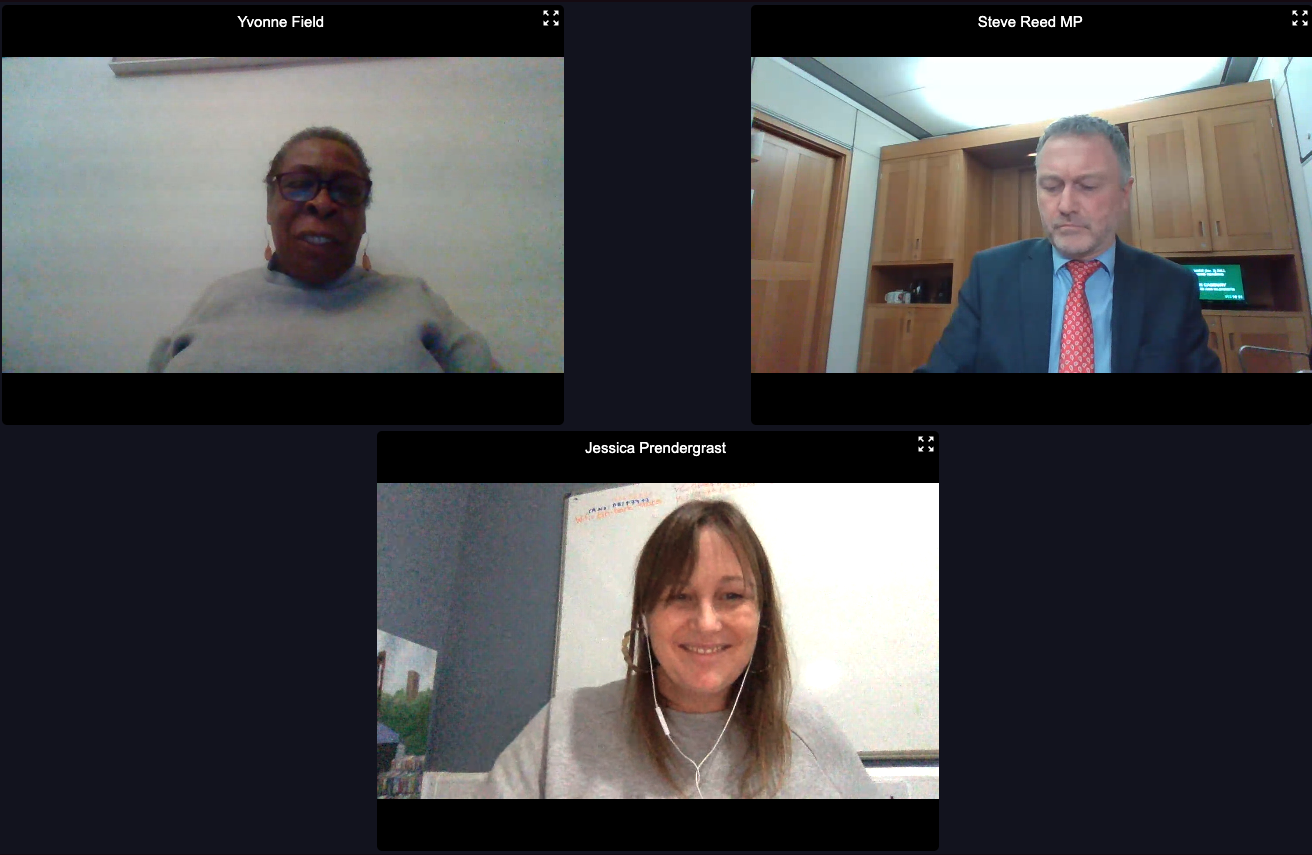How social enterprises and communities can unleash the UK’s people power
Social enterprises have the potential to help revitalise communities post-Covid but they face many obstacles, argue Jessica Prendergrast, co-founder and director of the Onion Collective, and Steve Reed MP, shadow secretary of state for communities and local government. They were speaking at the Social Enterprise Futures conference, a series of digital events run by Social Enterprise UK that brings together leading actors of the UK’s impact economy.
How to create a system where social enterprise can help communities to thrive? Here are four takeaways from the discussion moderated by Yvonne Field, founder of the Ubele Initiative:
1 . Overhaul the tax system…
Both speakers called for major changes in taxation to boost social entrepreneurship in communities.
Reed (pictured) called for scrapping business rates across the board – “an extremely unfair, old-fashioned tax”, which created “unfair competition” between shops on the high street and online retailers which pay lower rates for warehouses.
 He added business rates were a disincentive to scaling for the small businesses at the heart of the community, including social enterprises – because a bigger space means higher rates. “Why cap people's ability to achieve their full potential in life, which would benefit both them, their families, their community, but also all the rest of us?” he asked.
He added business rates were a disincentive to scaling for the small businesses at the heart of the community, including social enterprises – because a bigger space means higher rates. “Why cap people's ability to achieve their full potential in life, which would benefit both them, their families, their community, but also all the rest of us?” he asked.
Instead the tax system should be used to “support behaviours that we see as desirable”, Reed said. Taxation should be skewed in a way that supported enterprises working towards more desirable outcomes, whether they were social enterprises or other forms of businesses.
Government tax rules could prioritise, rather than penalise, social enterprises and community businesses and stimulate companies
Prendergrast pointed out that many councils already lowered or scrapped business rates for social enterprises and charities (the latter can usually claim a cut of at least 80%), something that should happen “across the board” in her view.
Going further, she called on the government to cut corporation tax to zero for companies that were purpose-driven rather than profit-driven.
“Government tax rules could prioritise, rather than penalise, social enterprises and community businesses and stimulate companies,” she said. The example of existing business rate cuts showed there was “no reason we couldn't do [the same] for corporation tax, other than political will”.
2 . … and the system itself
The economic systems change that was needed was much greater than just “tinkering with existing policies”, Prendergrast argued.
“We should have an economic system – the entire economic system that we're living within – that promotes positive economic behaviours.”
The current system, she added, did “the opposite of that” and “promoted damaging extractive externalities” which were detrimental to both society and the planet.
- Read more about global economic systems change: Kate Raworth: We’re going to redefine business
A “serious shift” was needed, and policy levers to achieve it were already there, according to Prendergrast. As an example, she said every private sector beneficiary of upcoming regeneration and levelling up schemes could be required, in exchange, to give up some equity to the community where they operate. “Doing so would attach communities to the businesses that affect them and give them a long-term stake in that relationship, as well as providing ongoing financing.”
And enabling social enterprises and charities to lead deep systems change required long-term funding, Prendergrast added. Economic damage that had been “ingrained” for the past 50 years couldn’t be fixed “within a 12-month project window”, she said.
Finding other ways of securing social enterprises and charities in the long term – such as community ownership, or one-off government capital funding to finance a building for example – were also needed, and already existed, she added.
It was about finding ways to “fund intelligently” to give social ventures a sustainable solution and put assets into the hands of the community “so that they can run for themselves”, she said.

Above, clockwise from top left: Yvonne Field, Steve Reed and Jessica Prendergrast at the Social Enterprise Futures conference
3 . Rethink the role of local government
More power should go into the hands of communities, believed both speakers – but they had different opinions on the role of local government in achieving this.
Reed, who was leader of Lambeth council in south London (which is a “co-operative council” where residents are given a greater say in decisions) between 2006 and 2012, said the answer lay in local government sharing power and giving more control to communities.
One way of doing so was to involve service users in commissioning decisions, putting them in charge of deciding what service was best for them instead of them being passive recipients. He also suggested reconsidering planning reforms to give local councils and communities more decision-making power and bringing disused spaces into community ownership.
Communities should also be given more say in how the money they are allocated is spent, he argued: budget going to communities should be “de-ring-fenced” with local people given the power to decide how to use it. “Where it happens, it opens up more innovation and creativity,” Reed said.
In many places... local government often retains a really impressive ability to prevent anyone else being able to act
But Prendergrast, whose social enterprise runs community-led regeneration projects in Watchet, a town in south west England, warned against letting local government get in the way of community initiative. While in some places councils did support community action, she said, “in many places, despite having very little resources to act in economic development, local government often retains a really impressive ability to prevent anyone else being able to act”.
There was no doubt local government should receive more funding, she added, but any “local government revival” shouldn’t become a mechanism by which to “flatten the seedlings” of community initiatives.
4 . Embrace “attachment economics”
Prendergrast advocated for a new type of economic structure with local communities at its centre which she called “attachment economics”. The guiding principle of it rested in a connection (attachment) to people, place and a period of time. “This is what makes us feel that we belong,” she said, explaining that social enterprises and community businesses were examples of structures operating within this framework.
She said: “Social entrepreneurs want to be part of building a new and a better future with an economic settlement that prizes something other than financial value: social, human and environmental value. They do that by incorporating attachment, in some form, into their business models.”
Social enterprises and community businesses were “demonstrating how attached enterprises can bring about change, create jobs, prioritise people, care about the environment and rebuild connections”, she added. Community enterprise had shown that it wasn’t about sticking plasters, she argued, but rather was “providing a really demonstrable way to replace the prevailing broken system with something else”, she said.
Top picture: Antwerp Arms community Pub in Tottenham. Courtesy of Power to Change.
Picture of Steve Reed MP by Chris McAndrew for UK Parliament.
Thanks for reading our stories. As an entrepreneur or investor yourself, you'll know that producing quality work doesn't come free. We rely on our subscribers to sustain our journalism – so if you think it's worth having an independent, specialist media platform that covers social enterprise stories, please consider subscribing. You'll also be buying social: Pioneers Post is a social enterprise itself, reinvesting all our profits into helping you do good business, better.



